Explore urban context and belonging with architect Jayden Ali
The world is changing and architecture is adapting, and a new wave of young practices in London emerges. They are armed with bold ideas, digital tools, new studio set ups and innovative designs and approaches. In our Next Generation series, join us in hailing this nexus of exciting studios from the UK capital through an ongoing series of weekly profiles. Jayden Ali set up JA Projects in 2015 to explore the stories and dialogues created between architecture and society and the importance of the sense of ownership and belonging.
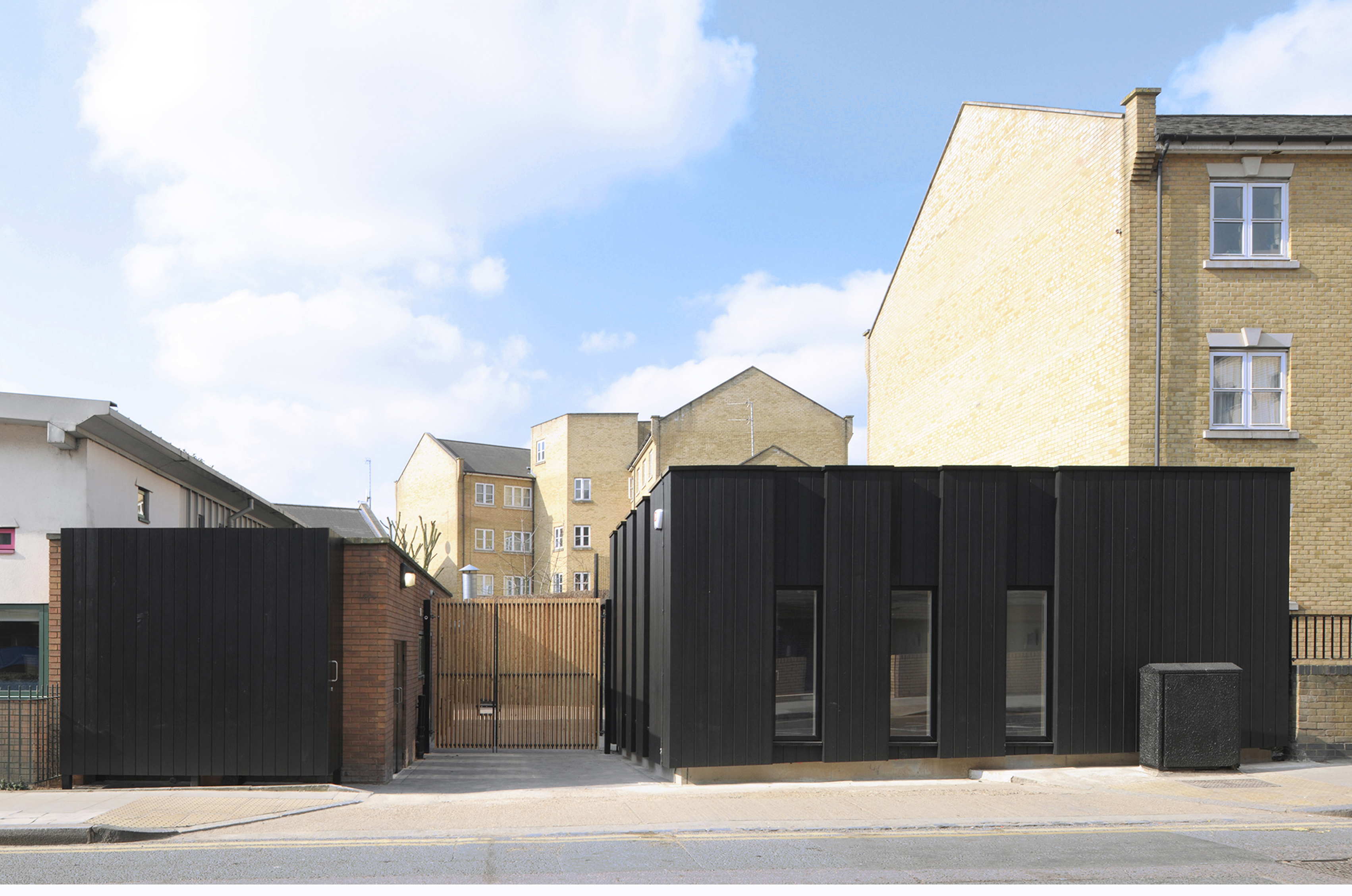
‘We see the city as a place of multiple stories, scenes and actors – a theatre that mediates our relationship as citizens between one another and place,' says architect Jayden Ali. Heading JA Projects since 2015, Ali has been working at the intersection of architecture, urban strategy, art and performance through a wealth of multi-disciplinary projects ranging from community and education commissions to film and curating. This way of looking at architecture, through an analysis of society, cultural power, ownership and expression, is a constant in the young studio's work.
Ali also teaches a senior lecturer at Central Saint Martins, where he co-leads the MArch Architecture (RIBA II) course, which helps fuel his research based approach. ‘We are interested in the ‘constructed works’ of the world (both material and immaterial) and their dialogue with society. And so, from small fleeting events to large permanent buildings and even larger urban strategies, we deliver projects that intervene both socially as well as spatially. All our work is considered research,' he explains.
Blending a social and performative component with a physical, built one is a key way of approaching design problems for Ali. The goal is to deliver ‘resilient and sustainable interventions that empower people and make a positive contribution to the environment and surrounding context.' His work reflects that, defined by a focus on the more subtle, often intangible things that are there but perhaps harder to define or quantify – human experience, the idea of belonging, insights, shifts in society and power struggles are common themes in many of his projects.
One of his latest creations, a triptych of films, explores all of the above. It's about a ‘new aesthetic of celebratory resistance,' he explains. The first, for the Royal Academy, was an exploration of the idea of home in the two dominant cultures of Bethnal Green in London: white-English and Islamic-Bangladeshis. The second, was a reflection on the murder of George Floyd and ‘the UK’s transatlantic relationship to America and it’s idols.' The third (a collaboration with art director Lotty Sanna), is still a work in progress and touches on notions of migration and womanhood in Marseille.
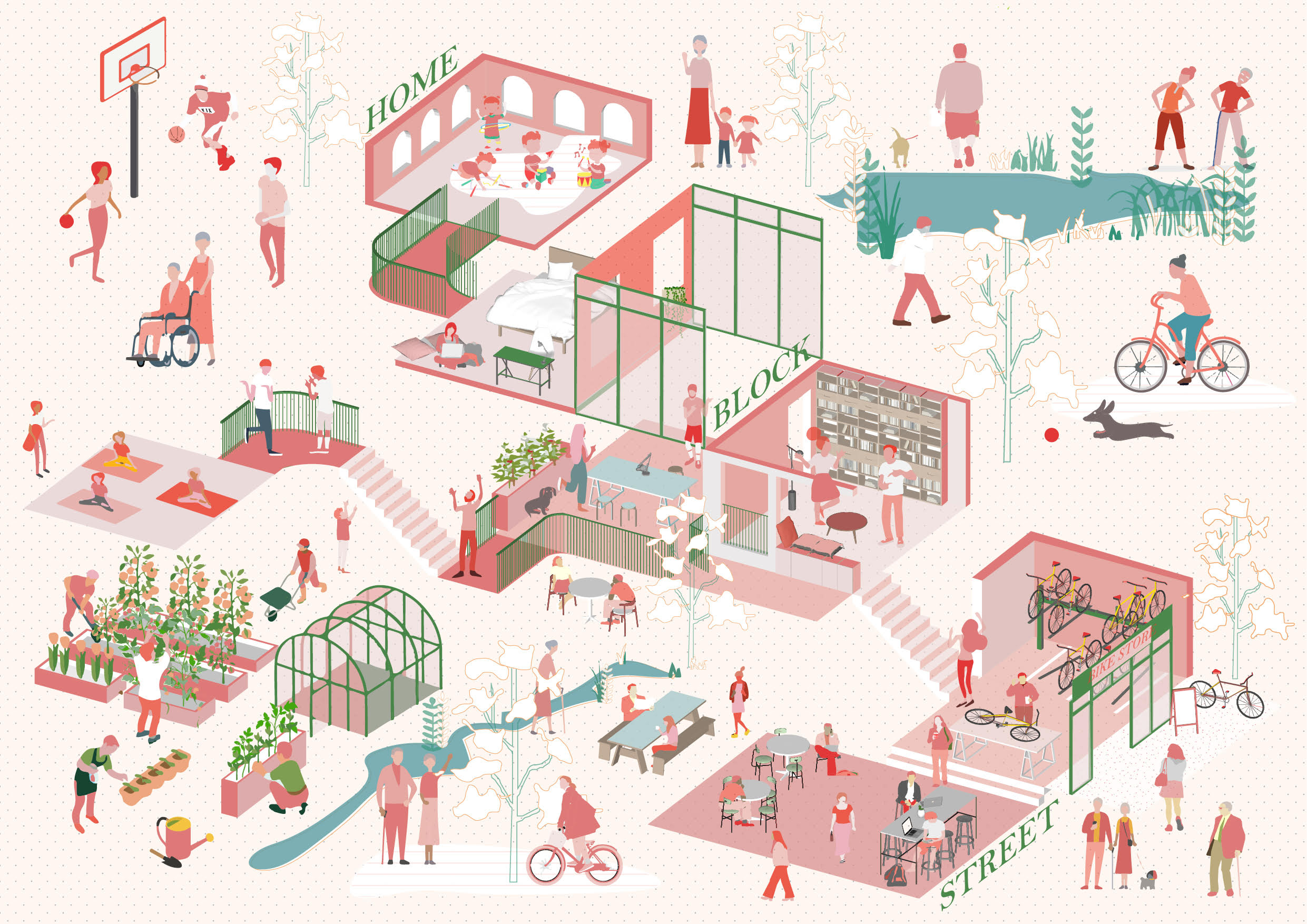
Home Beyond Boundaries, a collaborative proposal with Studio Weave, looking at intergenerational neighbourhoods
‘With these three films, the "project" is The City and these performative works are used to develop a definition of contemporary Western Black architecture – an architecture that conveys the power, beauty and alienation of the Black experience?' asks Ali.
RELATED STORY
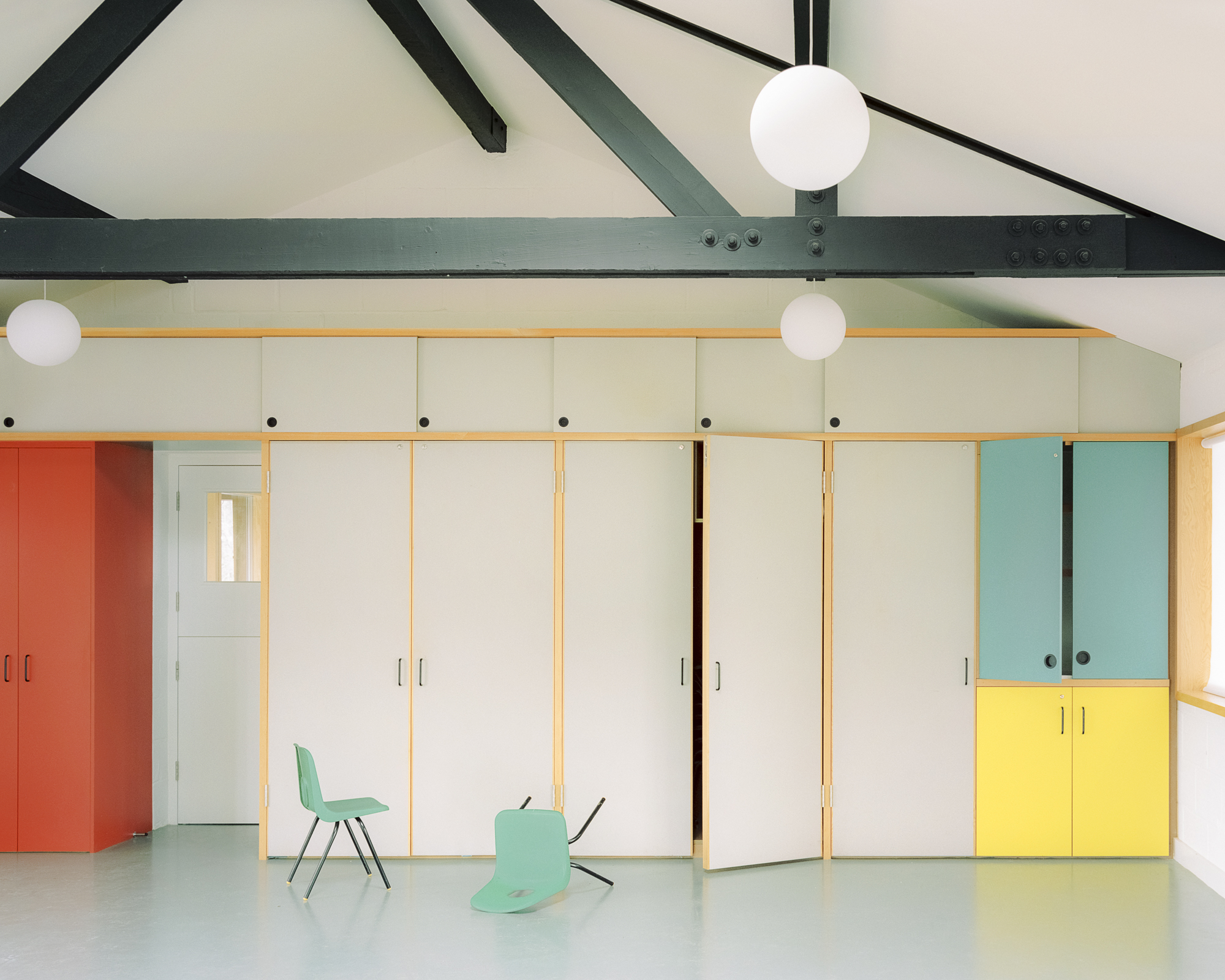
In more ‘conventional' architecture work, JA Projects is behind a whole school masterplan for a local authority primary school for children with behavioural difficulties – Cherry Trees. It was a phased development that came out of a comprehensive study of the users' needs, from the children to their families and the broader local school community. Ali considers it a breakthrough project for the studio and one that helped found the practice.
Pineapple Island, an alternative and immersive after school play provision that questions the merits of traditional learning spaces, was also part of the project. It allowed pupils to use the space as they wish, with open ended outcomes, making it their own.
This idea of ownership and belonging makes a frequent appearance in Ali's work. He is keen to highlight its role and power in the creation of architecture. ‘We think developing a sense of true belonging has the capacity to be the single most transformative contribution to the life of our cities,' he says. ‘Currently this is not the case and the built landscape is, for the most part, shackled by historicism, hegemonic, wasteful, elitist, short-termist and anonymous [forces]. If architecture, as a collective discipline, is to be meaningful within our new cultural era of inclusion it must radically revise its contribution to match the dynamism and relevance of other artistic pursuits. We want people to say ‘This is my home. I am not an outsider here. I belong here'.'
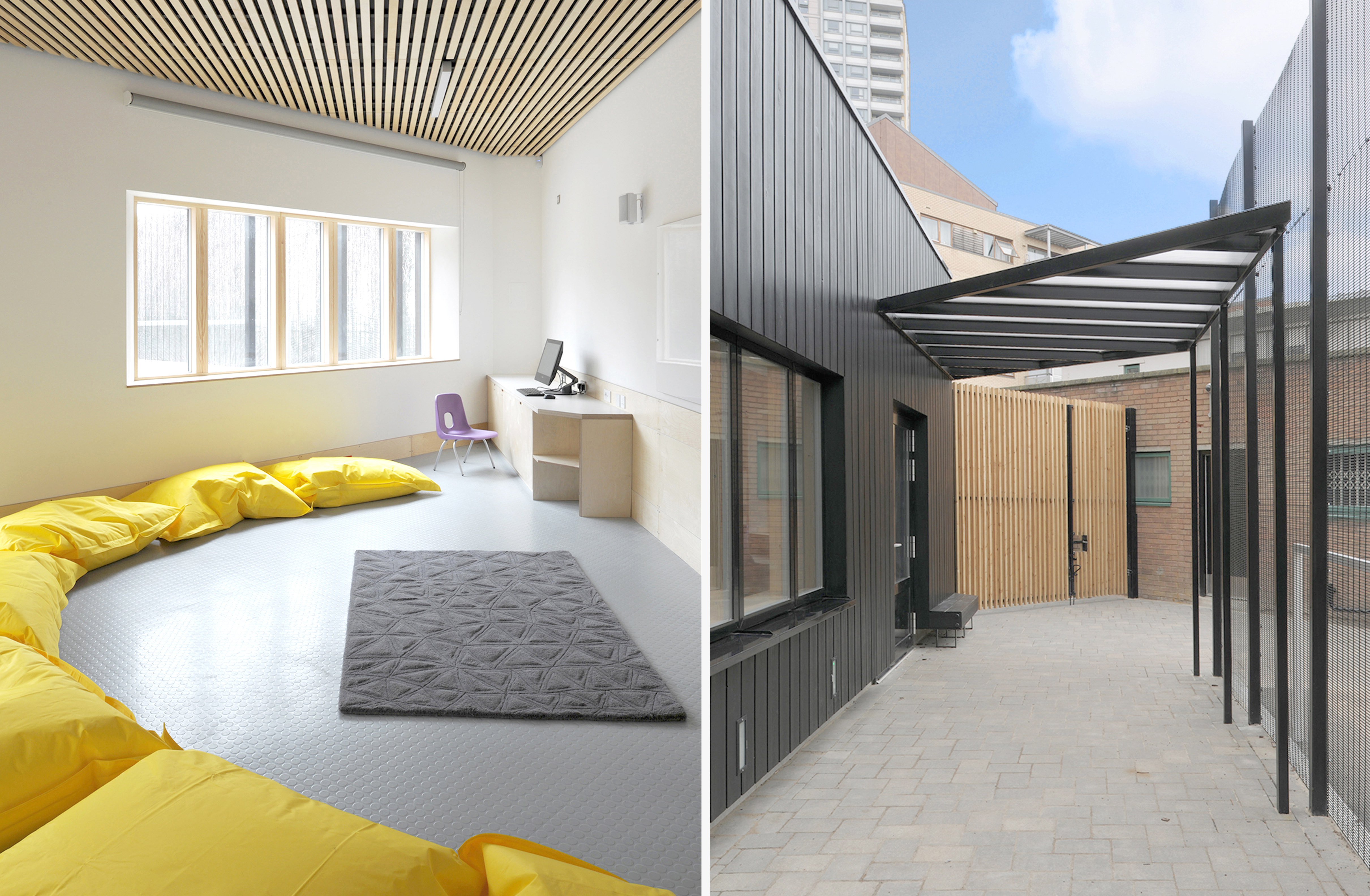
Pinneapple Island and Cherry Trees
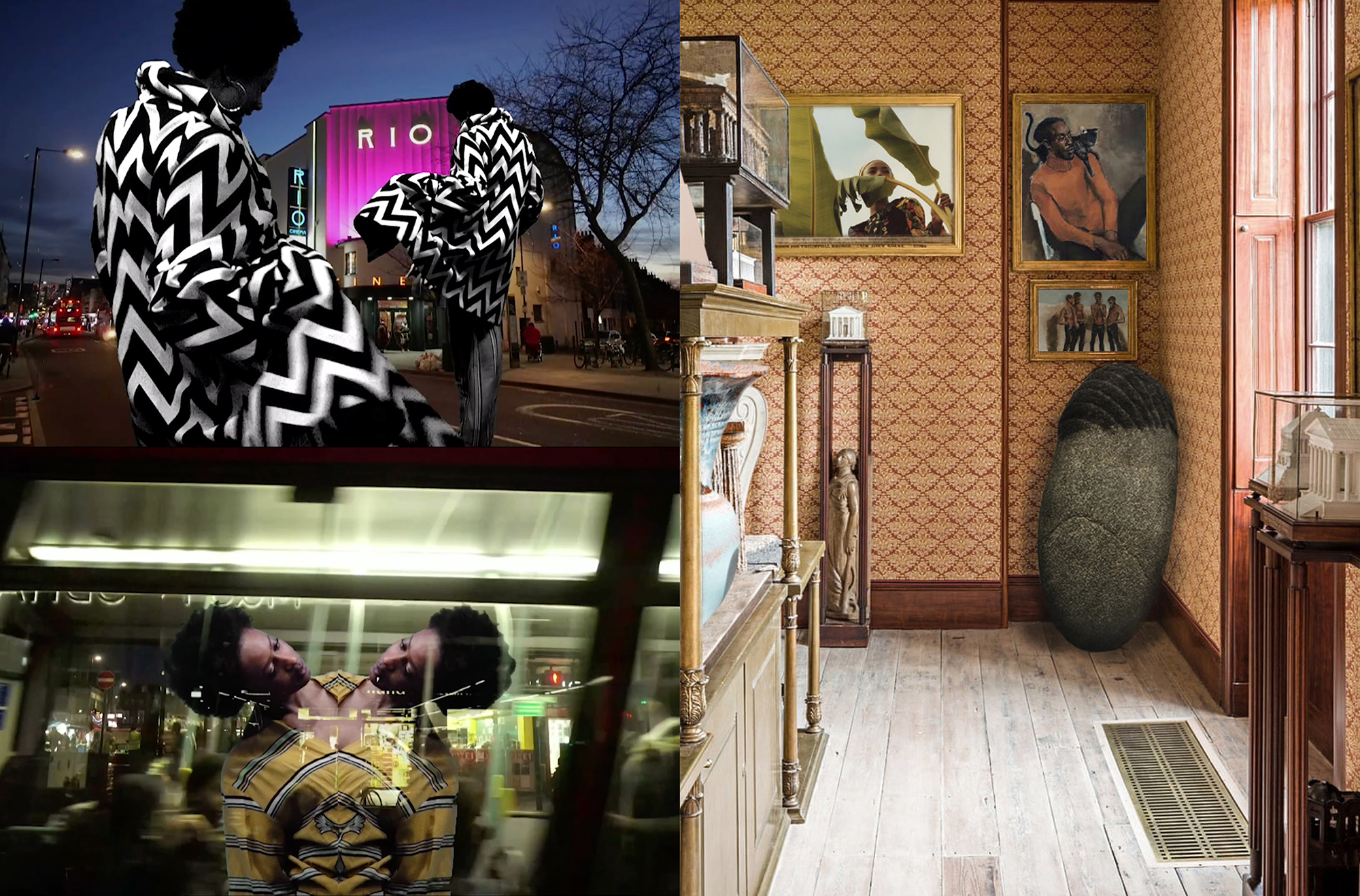
A House for Britain

American Gods
INFORMATION
Wallpaper* Newsletter
Receive our daily digest of inspiration, escapism and design stories from around the world direct to your inbox.
Ellie Stathaki is the Architecture & Environment Director at Wallpaper*. She trained as an architect at the Aristotle University of Thessaloniki in Greece and studied architectural history at the Bartlett in London. Now an established journalist, she has been a member of the Wallpaper* team since 2006, visiting buildings across the globe and interviewing leading architects such as Tadao Ando and Rem Koolhaas. Ellie has also taken part in judging panels, moderated events, curated shows and contributed in books, such as The Contemporary House (Thames & Hudson, 2018), Glenn Sestig Architecture Diary (2020) and House London (2022).
-
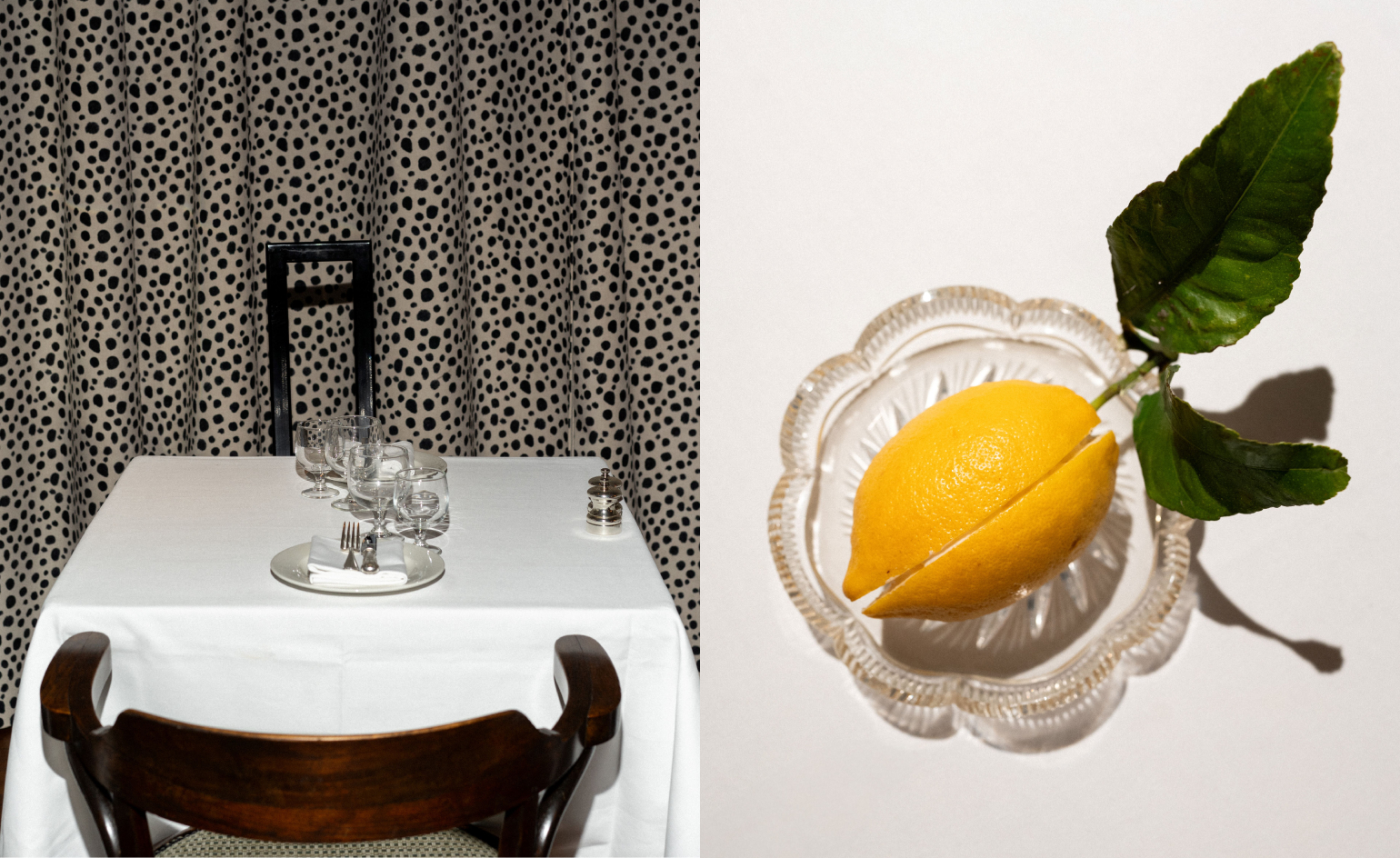 Marylebone restaurant Nina turns up the volume on Italian dining
Marylebone restaurant Nina turns up the volume on Italian diningAt Nina, don’t expect a view of the Amalfi Coast. Do expect pasta, leopard print and industrial chic
By Sofia de la Cruz
-
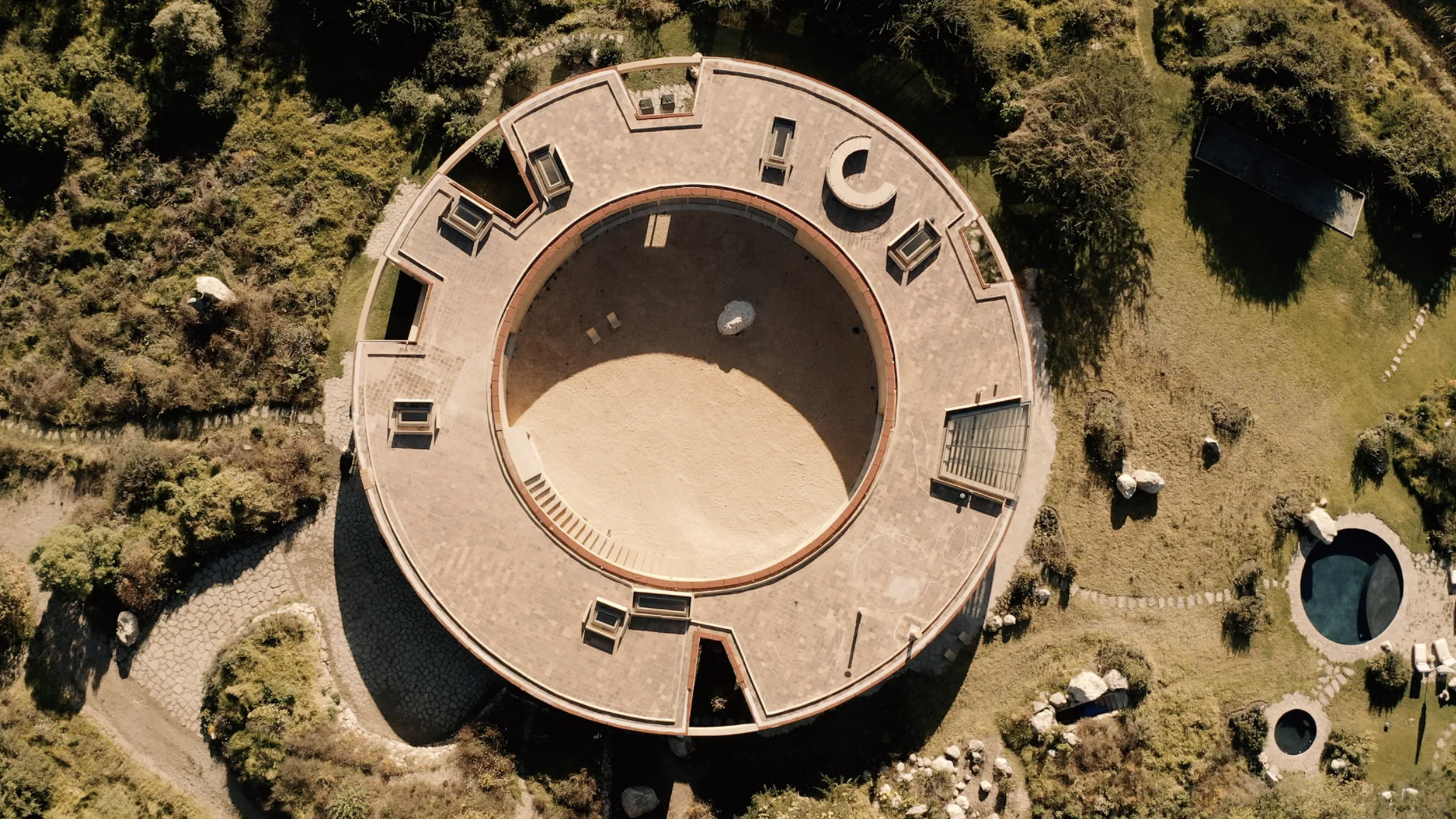 Tour the wonderful homes of ‘Casa Mexicana’, an ode to residential architecture in Mexico
Tour the wonderful homes of ‘Casa Mexicana’, an ode to residential architecture in Mexico‘Casa Mexicana’ is a new book celebrating the country’s residential architecture, highlighting its influence across the world
By Ellie Stathaki
-
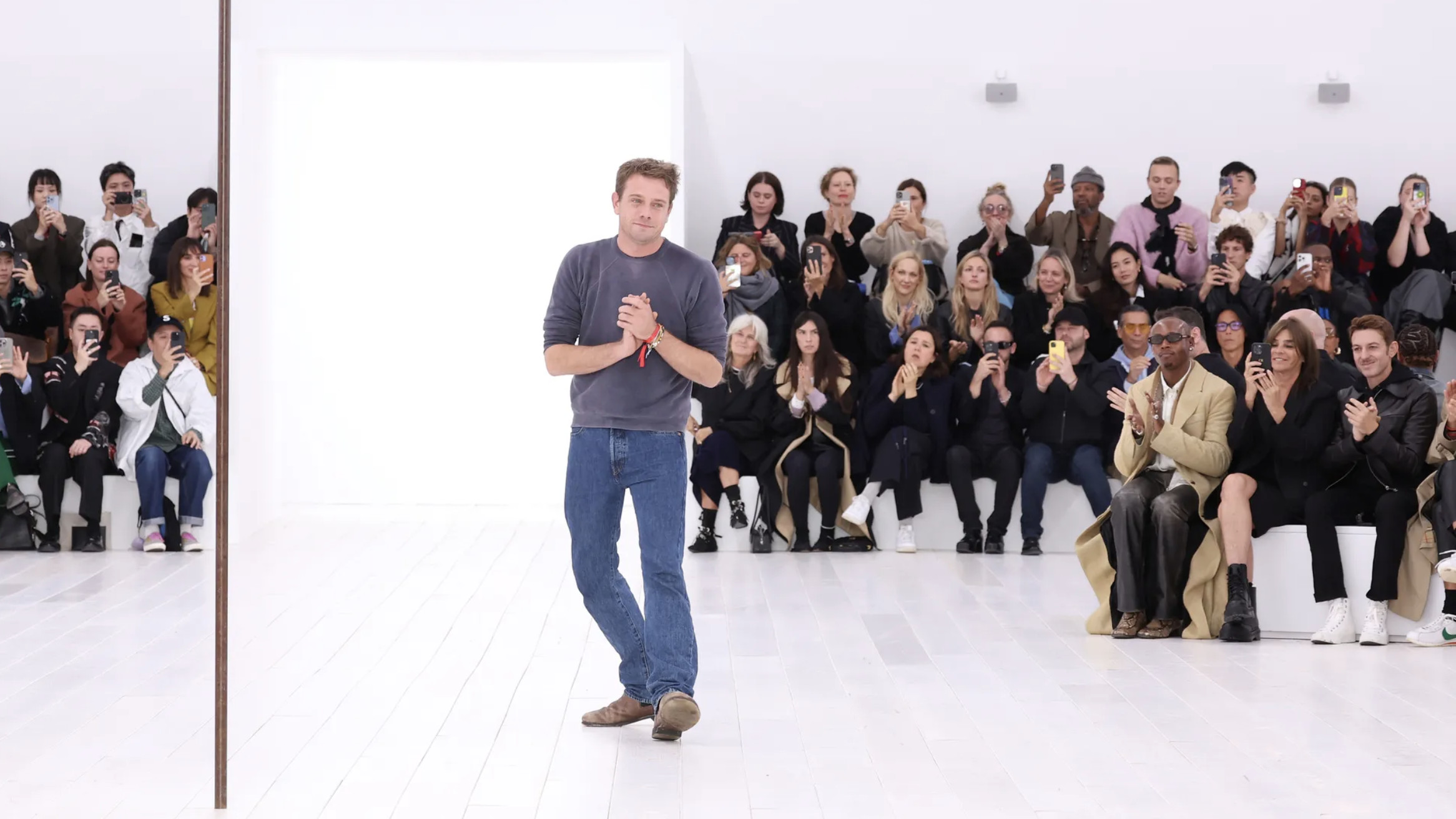 Jonathan Anderson is heading to Dior Men
Jonathan Anderson is heading to Dior MenAfter months of speculation, it has been confirmed this morning that Jonathan Anderson, who left Loewe earlier this year, is the successor to Kim Jones at Dior Men
By Jack Moss
-
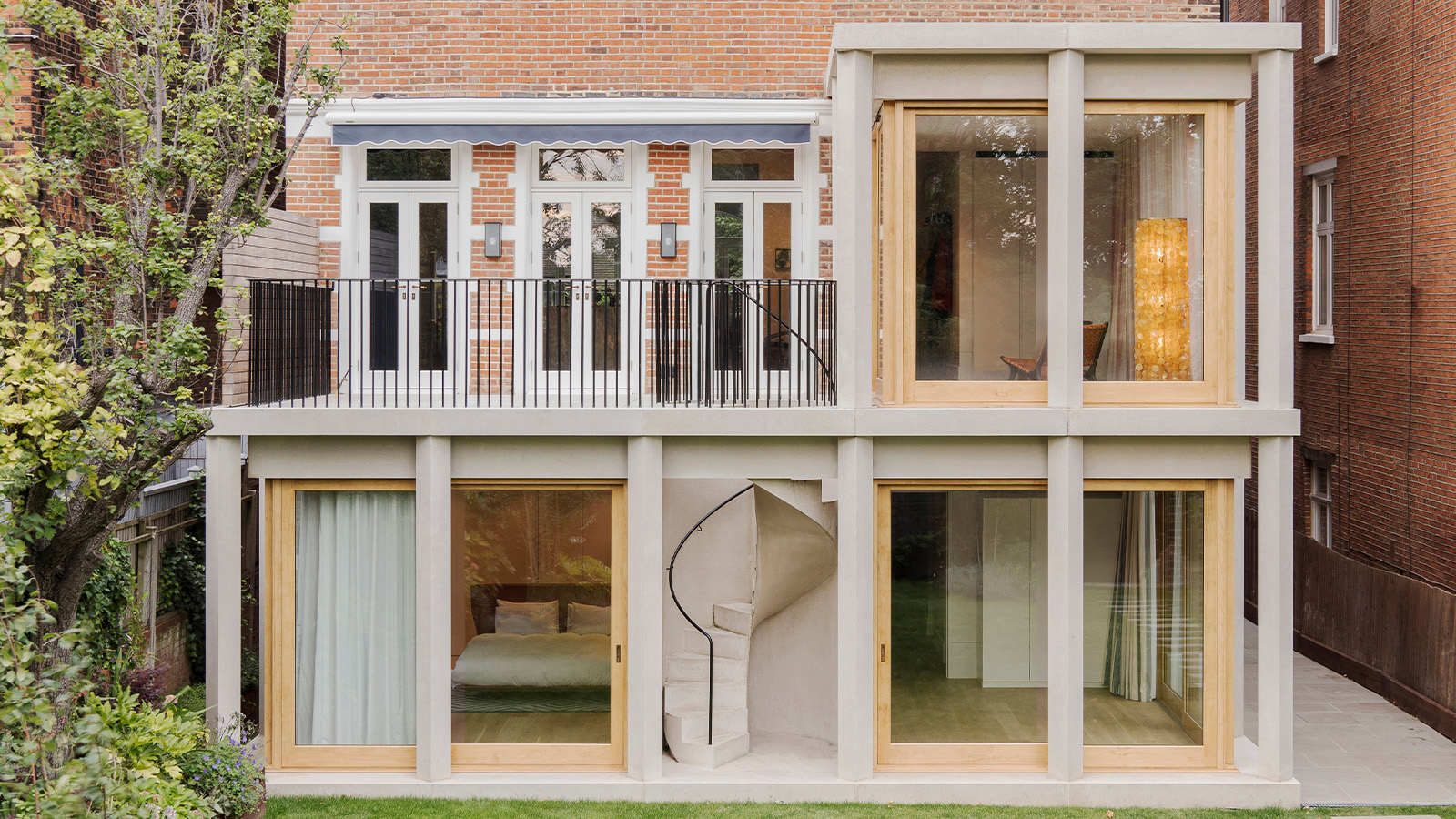 This 19th-century Hampstead house has a raw concrete staircase at its heart
This 19th-century Hampstead house has a raw concrete staircase at its heartThis Hampstead house, designed by Pinzauer and titled Maresfield Gardens, is a London home blending new design and traditional details
By Tianna Williams
-
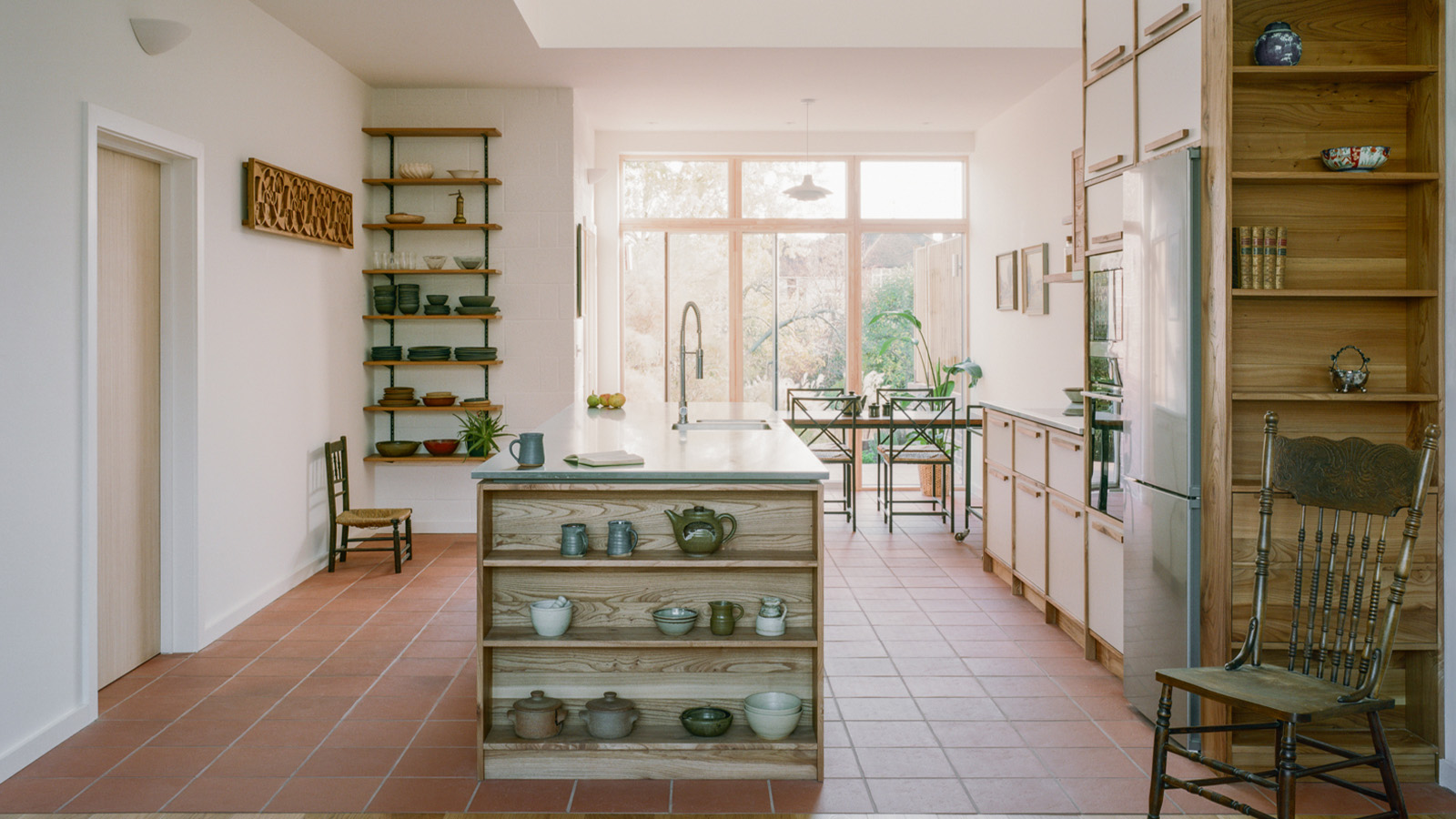 An octogenarian’s north London home is bold with utilitarian authenticity
An octogenarian’s north London home is bold with utilitarian authenticityWoodbury residence is a north London home by Of Architecture, inspired by 20th-century design and rooted in functionality
By Tianna Williams
-
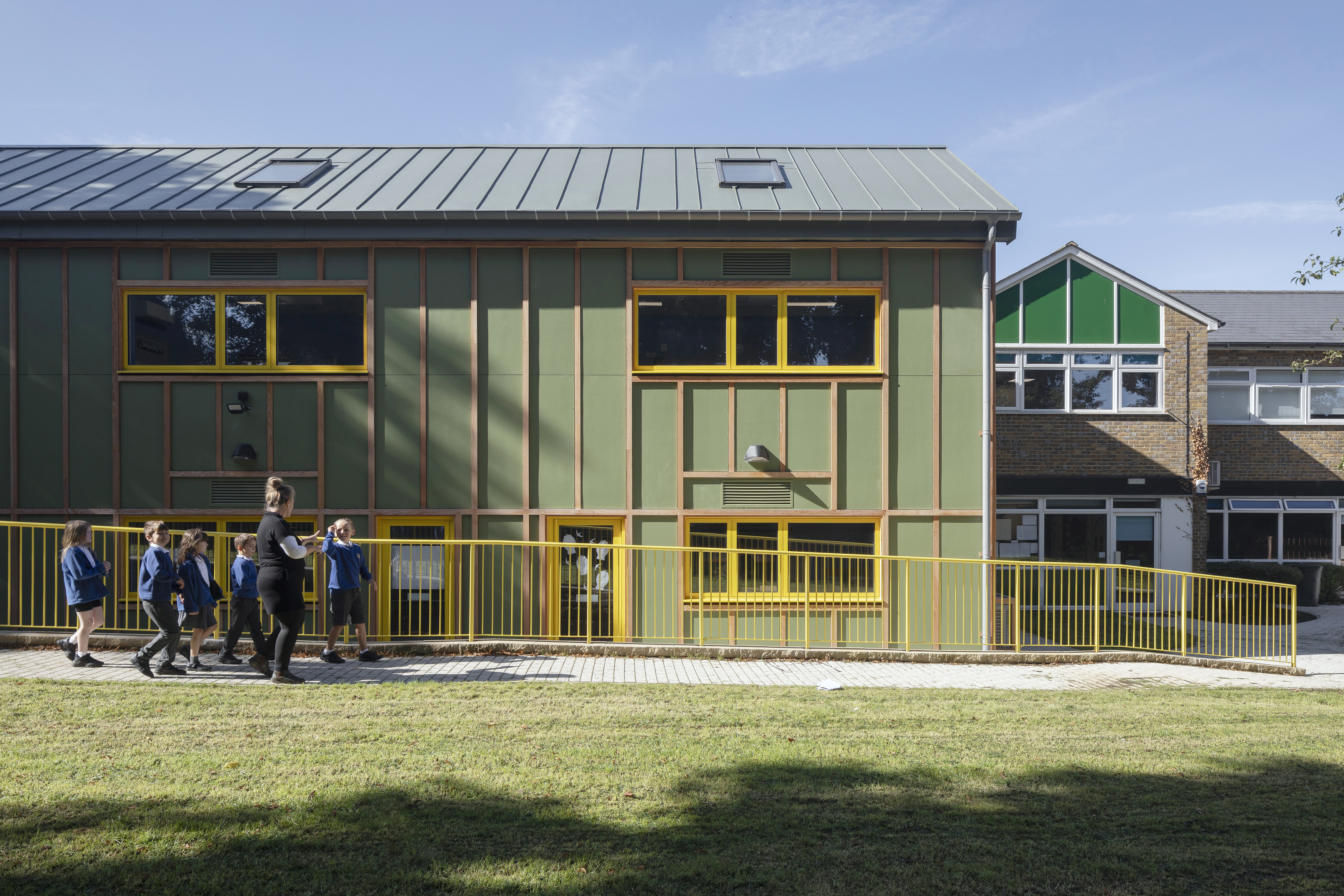 What is DeafSpace and how can it enhance architecture for everyone?
What is DeafSpace and how can it enhance architecture for everyone?DeafSpace learnings can help create profoundly sense-centric architecture; why shouldn't groundbreaking designs also be inclusive?
By Teshome Douglas-Campbell
-
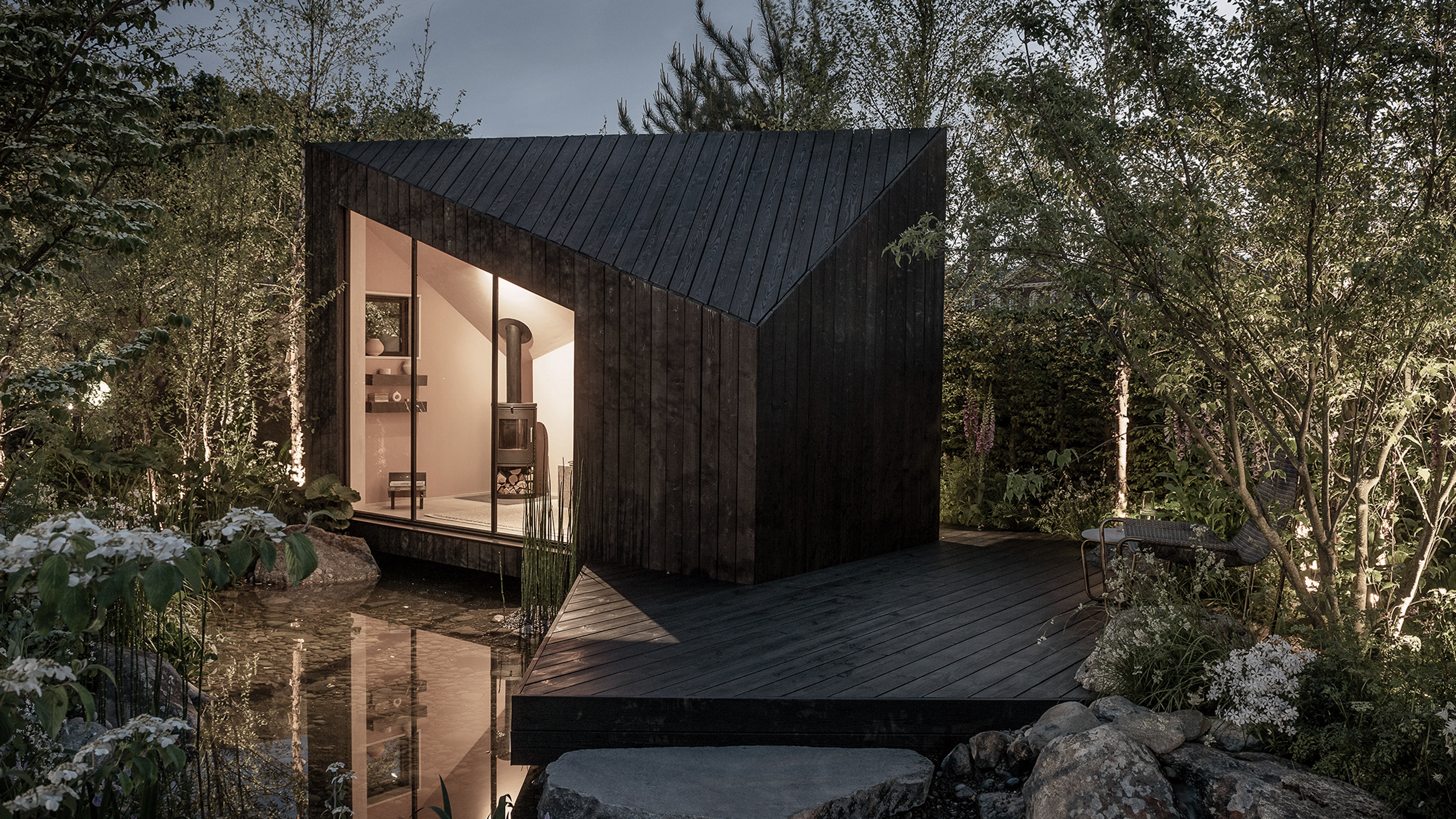 The dream of the flat-pack home continues with this elegant modular cabin design from Koto
The dream of the flat-pack home continues with this elegant modular cabin design from KotoThe Niwa modular cabin series by UK-based Koto architects offers a range of elegant retreats, designed for easy installation and a variety of uses
By Jonathan Bell
-
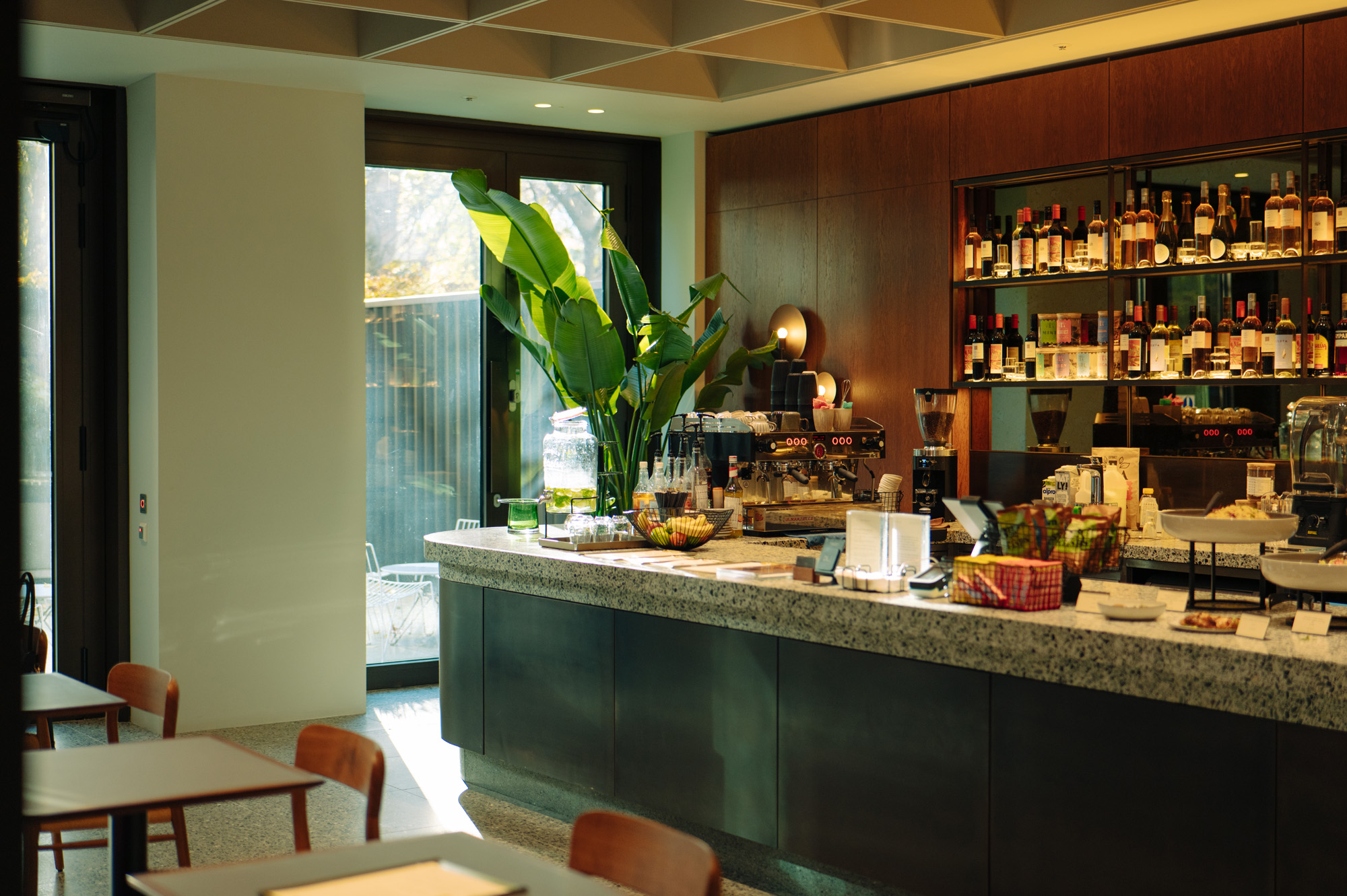 Are Derwent London's new lounges the future of workspace?
Are Derwent London's new lounges the future of workspace?Property developer Derwent London’s new lounges – created for tenants of its offices – work harder to promote community and connection for their users
By Emily Wright
-
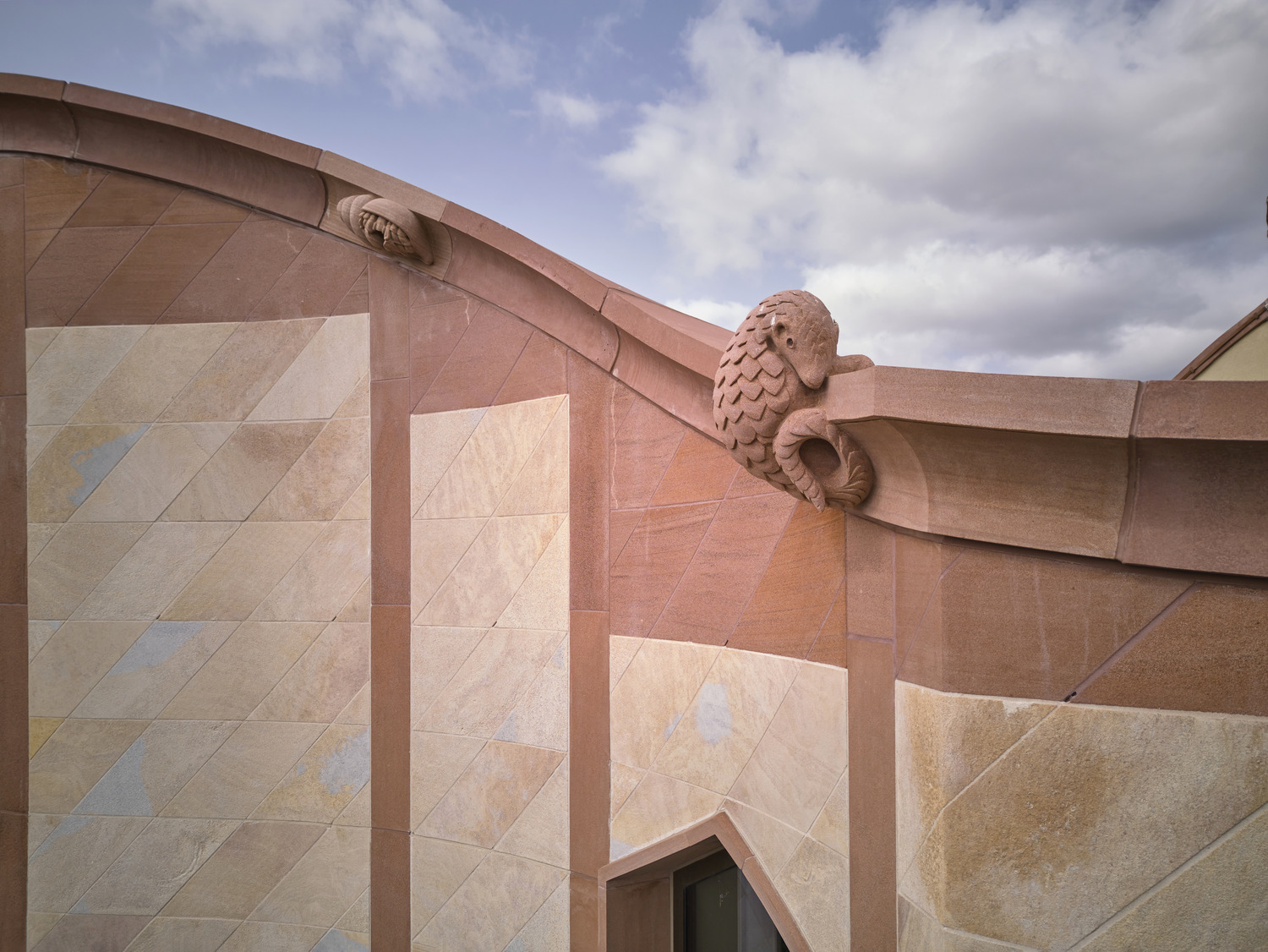 Showing off its gargoyles and curves, The Gradel Quadrangles opens in Oxford
Showing off its gargoyles and curves, The Gradel Quadrangles opens in OxfordThe Gradel Quadrangles, designed by David Kohn Architects, brings a touch of playfulness to Oxford through a modern interpretation of historical architecture
By Shawn Adams
-
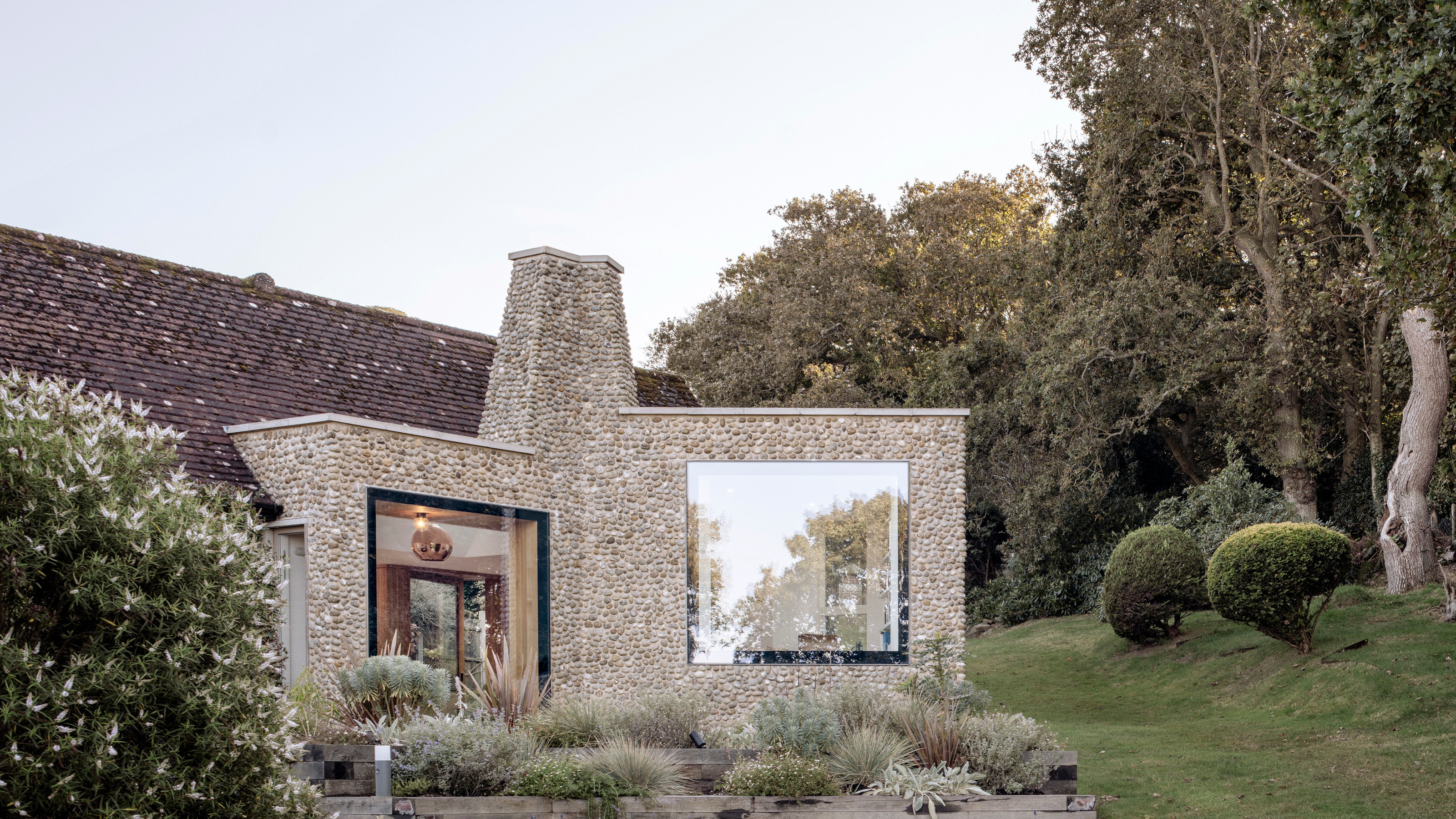 A Norfolk bungalow has been transformed through a deft sculptural remodelling
A Norfolk bungalow has been transformed through a deft sculptural remodellingNorth Sea East Wood is the radical overhaul of a Norfolk bungalow, designed to open up the property to sea and garden views
By Jonathan Bell
-
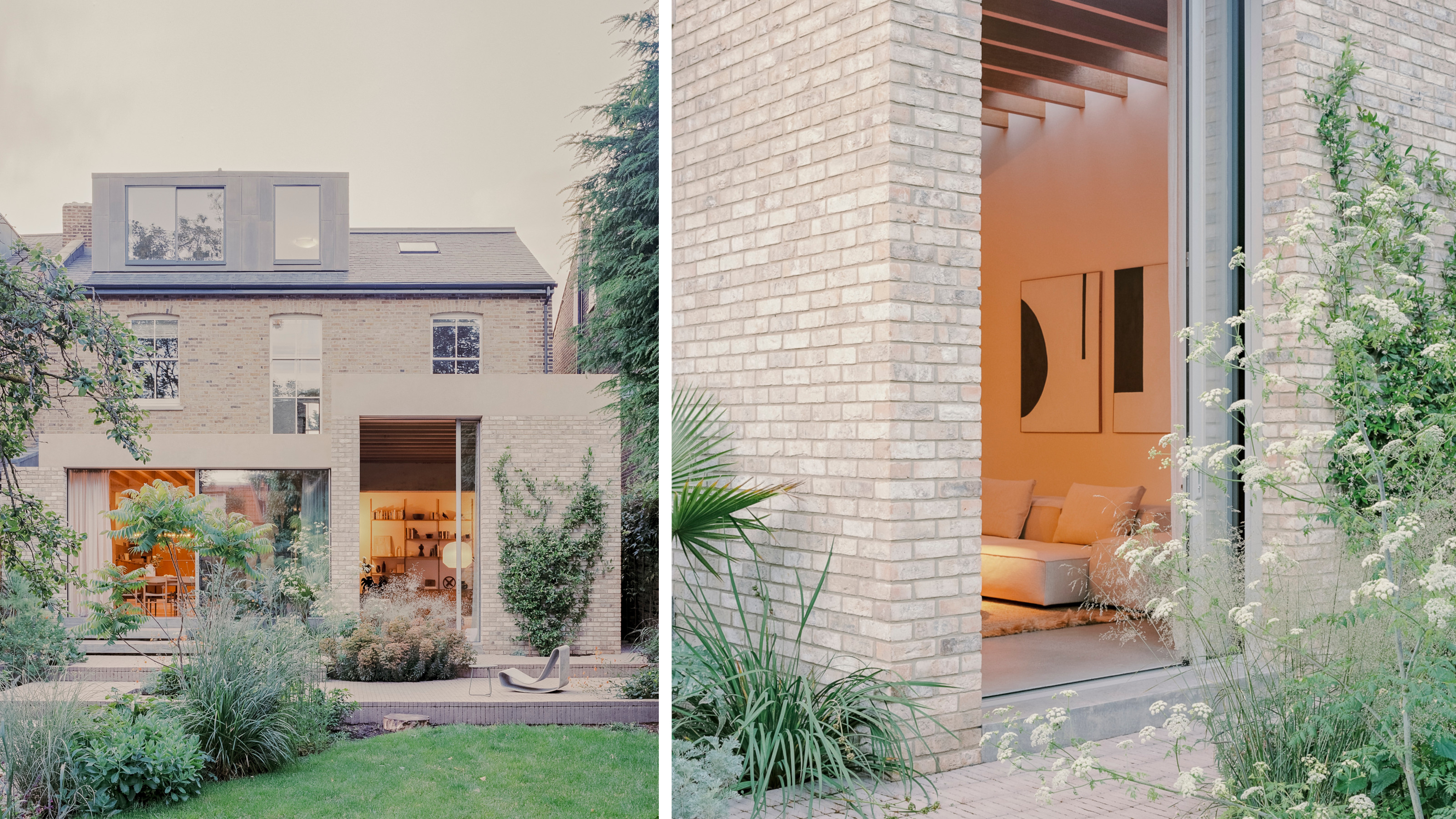 A new concrete extension opens up this Stoke Newington house to its garden
A new concrete extension opens up this Stoke Newington house to its gardenArchitects Bindloss Dawes' concrete extension has brought a considered material palette to this elegant Victorian family house
By Jonathan Bell